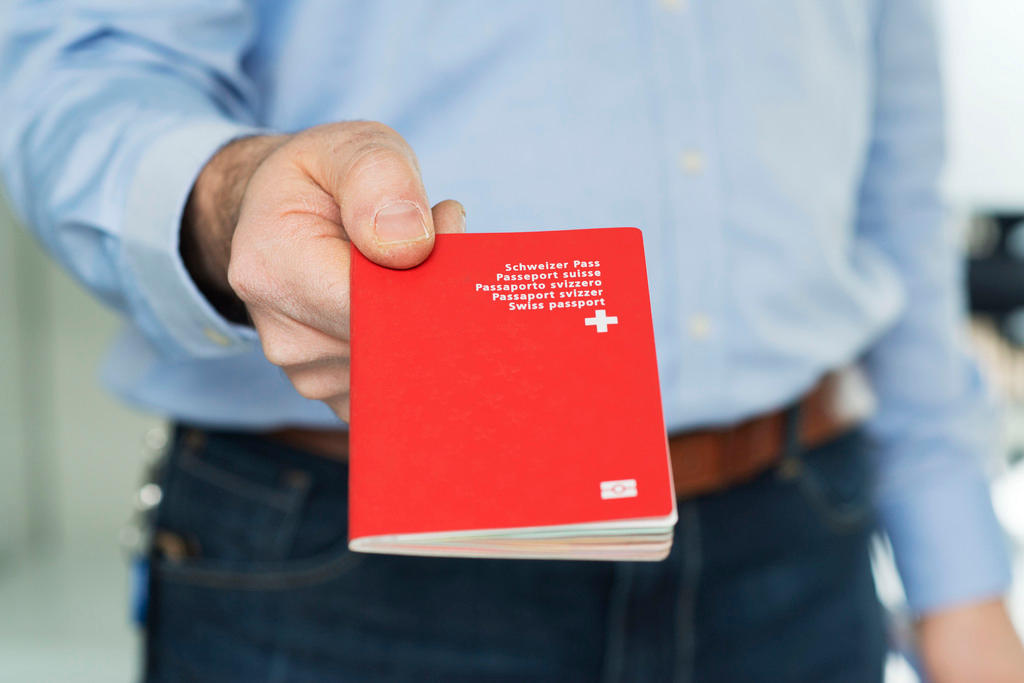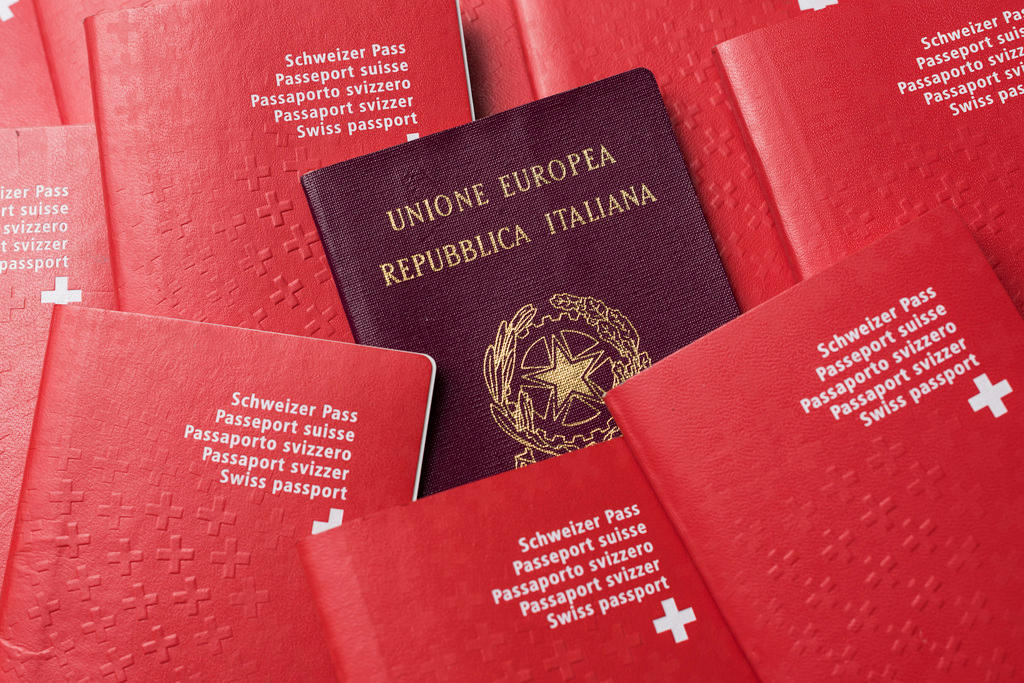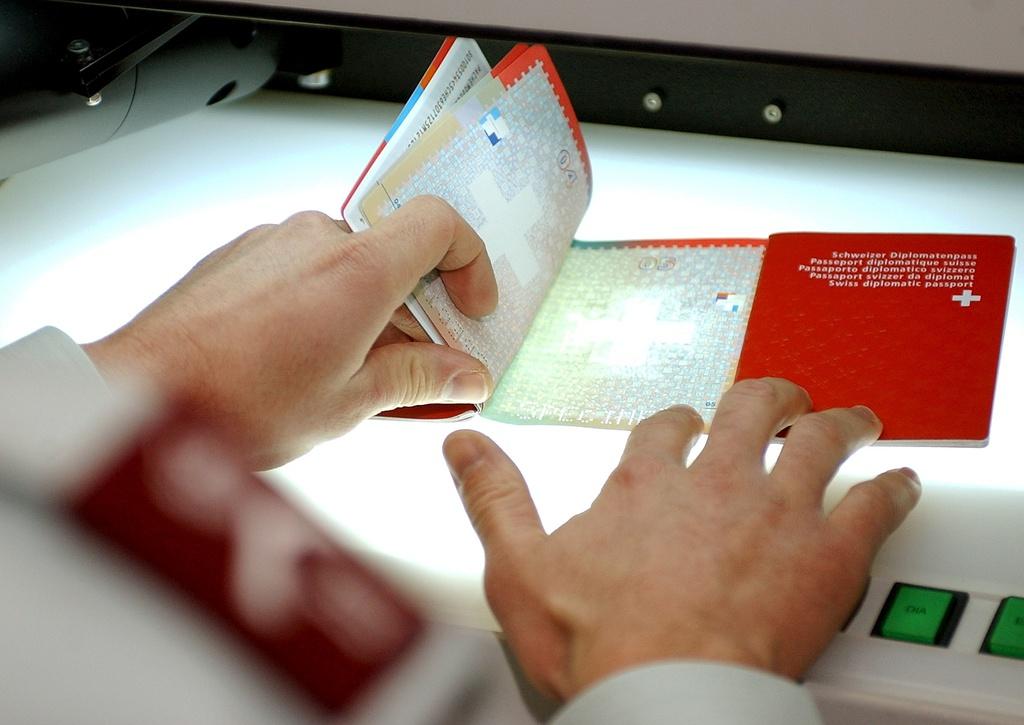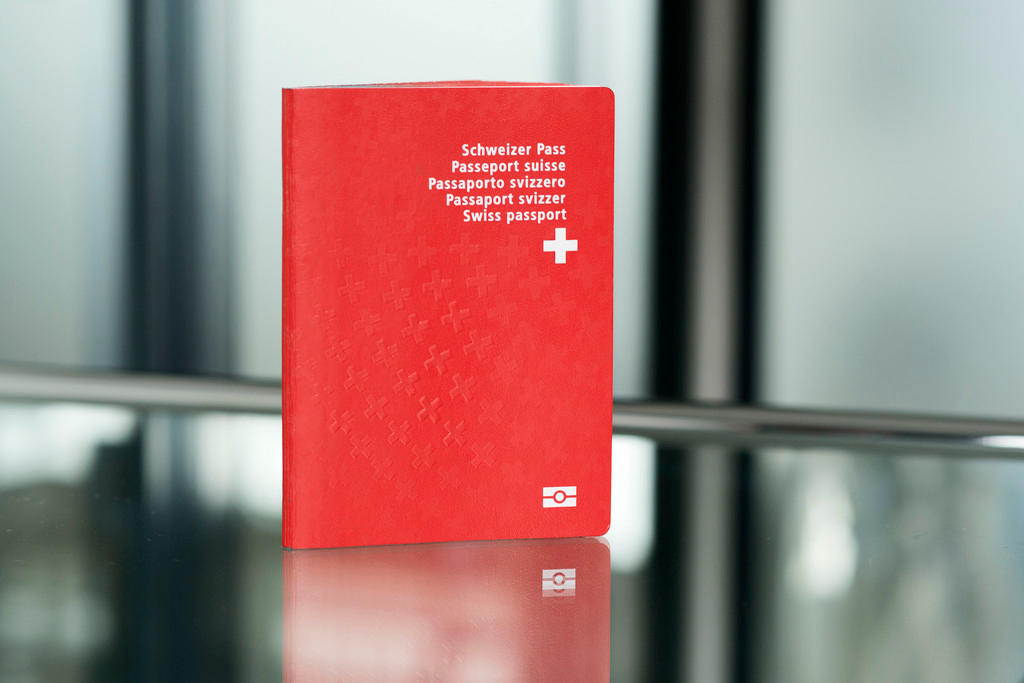Third-generation immigrants in no rush to take up Swiss citizenship

Around 1,000 young people have applied for Swiss citizenship since the law changed one year ago to ease naturalisation rules for third-generation immigrants.
It is estimated that 25,000 young third-generation immigrants (aged 9 to 25) are in theory eligible for a Swiss passport. In February 15, 2018, the law changed to allow those with grandparents who lived in Switzerland to use a facilitated procedure for naturalisation that is simpler and cheaper (see explanation below).
However, one year on the number of applicants remains low. The Federal Migration Commission reported on TuesdayExternal link that 1,065 young third-generation immigrants had applied for a passport and 309 cases had been approved.
Applications by region
Some 80% of applicants were from four countries: Italy, Turkey, Kosovo and Spain. Around 55% of the applications were made by nationals from the European Union or the European Free Trade Area (EFTA), and 72% of those naturalised were EU/EFTA nationals.
Two-thirds of applications were from six cantons – Aargau, St Gallen, Solothurn, Thurgau, Basel and Bern. French-speaking cantons were all below the Swiss average for the number of applications.
+ Read about the vote that eased citizenship rules for third-generation immigrants
Lower than expectations
Sybille Siegwart, spokesperson for the Federal Migration Commission, admitted there had not been many applications but said 1,000 was “positive”. According to a study cited by the State Secretariat for Migration (SEM), in the next ten years, 2,300 young people per year could take advantage of facilitated naturalization.
“One would have wished that considerably more young third-generation foreigners would make use of the offer,” said Walter Leimgruber, President of the Commission. Those concerned are fully integrated in Switzerland – except for the fact that they do not have a Swiss passport.
“As a society, one should wish that young people who were born and live here see themselves as part of this very society. Citizenship makes it possible to become more politically and socially involved, Leimgruber continued.
Stumbling blocks
The Migration Commission said one “stumbling block” for many candidates had been trying to prove that one of their parents had attended compulsory school in Switzerland for five years, a requirement of the new law. This is complicated by the fact that most migrants at the time arrived in Switzerland as seasonal workers and only attended compulsory school for a few years before starting vocational training, explained the commission.
It therefore recommends that the professional training followed by migrants’ parents also be considered as proof of integration and that the law should be adapted accordingly.
Application procedure
Normal procedure in Switzerland is that non-nationals must have spent ten years in the country before applying for citizenship, after which they must apply to their local commune and sit for language tests and interviews to prove integration.
The new naturalisation rules for third-generation immigrants are supposed to simplify the procedure, which is now done directly with the federal authorities. The following conditions apply: they must have been born in the country, hold a C permit, have gone to school in Switzerland for five years, one parent must have gone to school in Switzerland for five years and a grandparent must have been born in the country or lived in Switzerland legally for at least six years.
The maximum age for applying through this facilitated channel is 25, to ensure candidates do not wait longer to shirk military service.
As with the standard procedure, candidates are expected to be well-integrated into their communities and to respect the values of the Swiss constitution.

In compliance with the JTI standards
More: SWI swissinfo.ch certified by the Journalism Trust Initiative





You can find an overview of ongoing debates with our journalists here. Please join us!
If you want to start a conversation about a topic raised in this article or want to report factual errors, email us at english@swissinfo.ch.